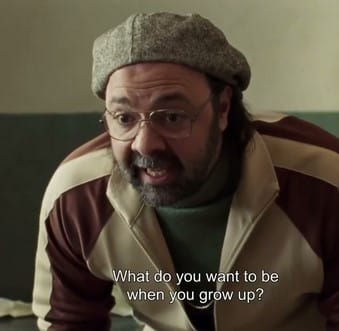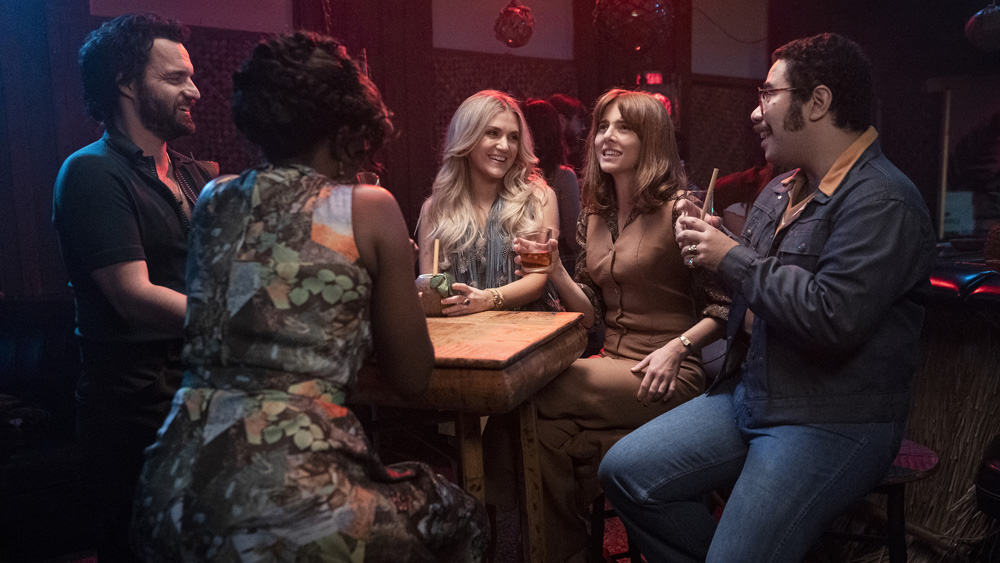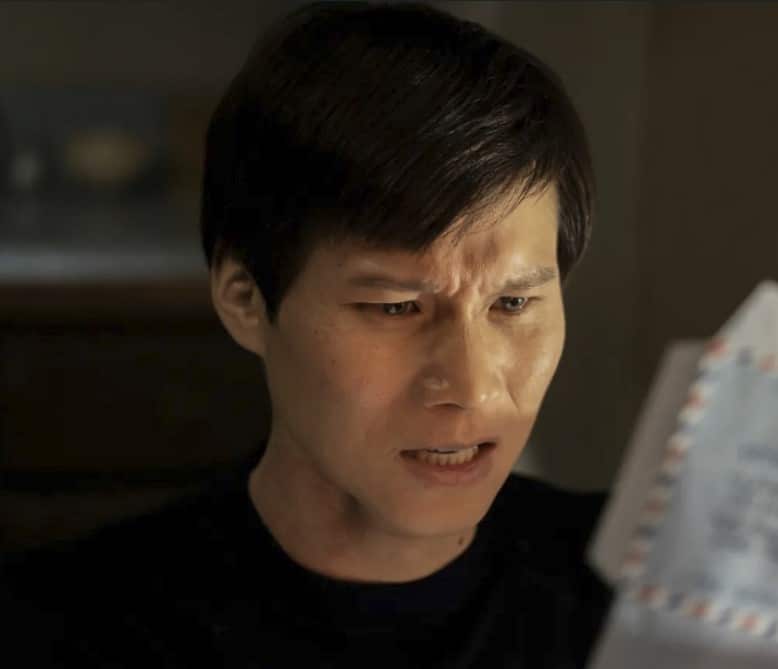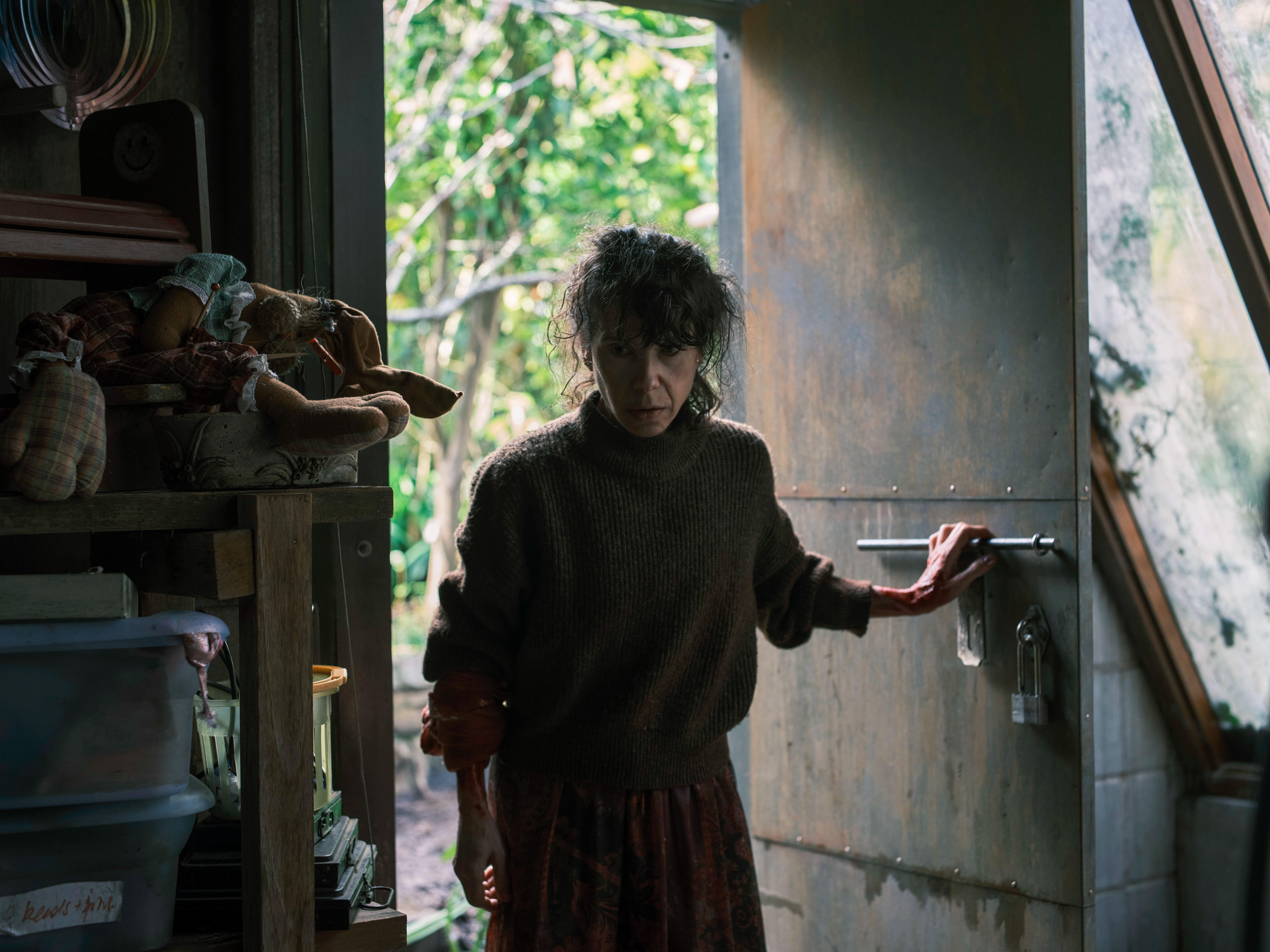Watercooler Pick
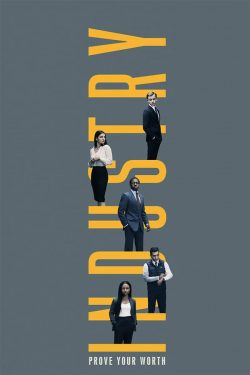
Industry S1
- Series
- Where to Find It: HBO Max
- Rating: TV-MA
- Release Date: 2020
- Seasons: 1 Season
- Episodes : 8 Episodes
- Length: 50 Minutes
Recommended by:
Share on social media
Find More Watercooler Picks
A London-set drama that could only come from HBO, Industry follows the sexual and career travails of five flawed and ambitious college grads aiming for a permanent position at the prestigious Pierpoint & Co, a fictional international bulge-bracket investment bank.
The cast is mostly British, but not very well known on the other side of the Atlantic. The main character, Harper Stern, is played by Myha’la Herrold (Modern Love). You might recognize other faces from minor or supporting roles such as Nabheen Rizwan (1917), Conor MacNeil (Siege of Jadotville), Ken Leung (Lost, The Sopranos, Star Wars Episode VI: the Force Awakens), Will Tudor (Game of Thrones), Priyanga Burford (No Time to Die).
 Industry throws up the mix of toxic relationships, cut-throat dialogue, and c-bombs that we’re used to from Succession, combines it with the greed and backstabbing brashness of The Apprentice, and sets it against a mostly obscure soundtrack of lo-fi hip hop and ’80s inspired synth pop. There aren’t any real love-to-hate-them characters like in Succession, but the young, relatively unknown cast give the show a freshness and excitement. For some, the sex scenes and sexual tension between characters will be reason enough to watch the show.
Industry throws up the mix of toxic relationships, cut-throat dialogue, and c-bombs that we’re used to from Succession, combines it with the greed and backstabbing brashness of The Apprentice, and sets it against a mostly obscure soundtrack of lo-fi hip hop and ’80s inspired synth pop. There aren’t any real love-to-hate-them characters like in Succession, but the young, relatively unknown cast give the show a freshness and excitement. For some, the sex scenes and sexual tension between characters will be reason enough to watch the show.
The series constantly challenges the audience to consider the effects of standing up to abusive and manipulative behavior, what constitutes “acceptable” in the workplace, and the extent to which diversity has been achieved in one of the most high-pressured, white-male-dominated working environments.
The main character is Harper Stern, whose steely, emotionless determination and avaricious tactics make her difficult to love, but an interesting protagonist. Like other characters, she has to deal with the kind of toxicity that’s so common in high-tension industries. As part of the large work-from-home audience watching Season 1 during the pandemic, I’m sure I was one of many finding that the show offered a dose of schadenfreude — rather than romanticizing distant memories of office life.
Episode 1 starts with highlights from the interviews of the five candidates, like an episode of The Apprentice. Harper is an American college drop-out with a counterfeit college transcript, and she immediately stands out as being unconventional. She’s a long way from home, but she’s more interested in catching sight of an uncircumcised penis than Big Ben. She puts her IQ on her resume and stakes her claim to the job by pointing out that “mediocrity is too well hidden by parents who hire private tutors.” This description could well describe three of the other graduates: Yasmin, a sexually frustrated multi-lingual “princess” with a stoner boyfriend who shares her absent mother’s luxury Notting Hill pad with her; Robert, a blond, athletic posh-boy with a spiraling drug habit that threatens to derail his career; and Gus, an even posher, Old Etonian, Oxford graduate and admirer Margaret Thatcher (“She’s why we’re here, Jesus was a carpenter”) who, as a Black gay man, is courted by the bank as a poster boy for its diversity drive, but held back for the same reasons. The final graduate is Hari, a British-Pakistani who works twice as hard as any of the others, putting in long hours with the help of Modafinil and Red Bull before catching a few hours’ sleep in a bathroom stall.
Since the financial crisis—with the exception of a few movies inspired by events in the finance industry in the early 2000s, like The Wolf of Wall Street and The Big Short—banking has been unfashionable, possibly because we’d all heard too much about it and were sick of the greed and government bailouts that for many were the cause of so much subsequent pain. Shows set in the workplace such as Suits (law firm), The Bold Type (fashion media) or Being Mary Jane and The Morning Show (TV news) have looked elsewhere for good stories.
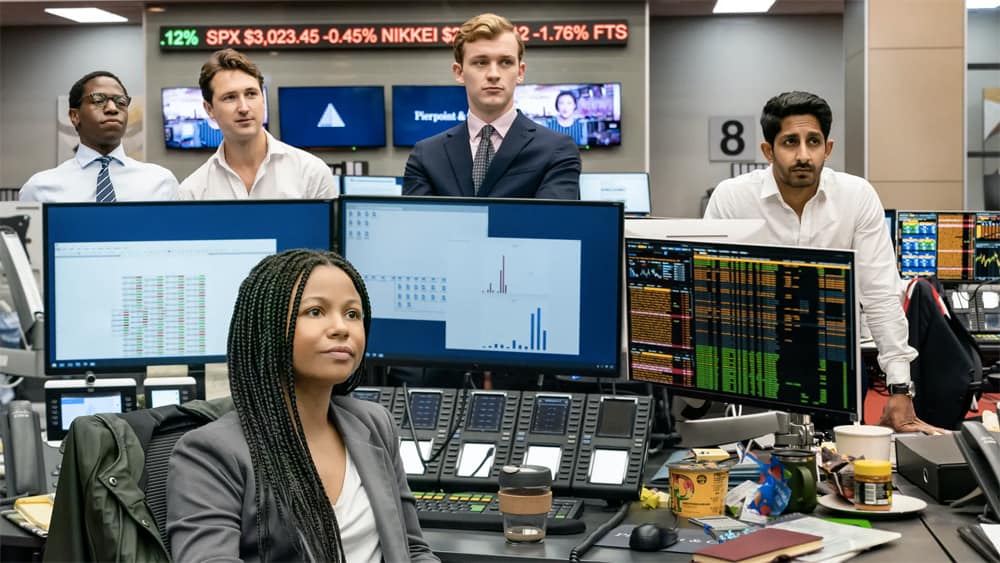 Fast-forward 13 years and it’s now safe to return to banks: Industry reminds us of what a perfect setting they are for a show about office politics, sex, drugs, workplace abuse, greed, and the high-flying London lifestyle.
Fast-forward 13 years and it’s now safe to return to banks: Industry reminds us of what a perfect setting they are for a show about office politics, sex, drugs, workplace abuse, greed, and the high-flying London lifestyle.
The financial industry highlights the struggle between traditional and modernizing forces like no other. London’s City district, the oldest and possibly most traditional financial district in the world, makes for a perfect setting for this: an environment traditionally managed by alpha-males, Charles Dance or Hugh Grant-like gents with double-barreled surnames who have only recently gotten used to brown shoes let alone brown faces, and women managers are now facing competition from upstart millennials who aren’t always the “right color” or educated at the “right schools.”
Some of the characters represent the growing diversity of people working in British finance; others represent the cobwebs of tradition and privilege. However, most—Harper is one exception—are more complex than this and contribute varying quantities of both diversity and privilege to the characters’ backstories, making it difficult to predict how things will pan out. Conflicts are rarely clear cut, and the privileges and obstacles of education, class, race, gender, or sexuality frequently cancel each other out.
A taut, binge-worthy series fueled by greed, drugs, sex, and money, Industry provides all of these ingredients in Federal Reserve-sized quantities. There’s never a dull moment.
If you can, watch the show with someone who works or has worked on a trading floor or at a large bank. Not just so that they can explain the terminology (your enjoyment of this show won’t be affected by whether you know the difference between a long and a short position), but so they can either entertain you with similar office gossip and stories of greed, sex, drugs, and multi-million dollar deals — or bemoan the inaccurate glamorization and lack of stories about Excel spreadsheets and Power Point presentations (there actually are one or two).
Some of what happens in Industry is clearly far fetched and fictionalized for dramatic effect: graduates will never be invited on client dinners or be in a position where they’re able to lose sums of money in their first few weeks. While drug use does exist in finance, at times the cocaine almost seems to have replaced the water cooler. However, co-writers Mickey Down and Konrad Kay have both done time on real trading floors, and there is a quite precise attention to detail in how many things work, such as the long-hours, dog-eat-dog culture, or the experience of people of color and women in the industry.
- Moods: grip me, transfix me
- Interests: conversation worthy, edgy, fresh perspectives, international

Xoan-Carlos Leon



